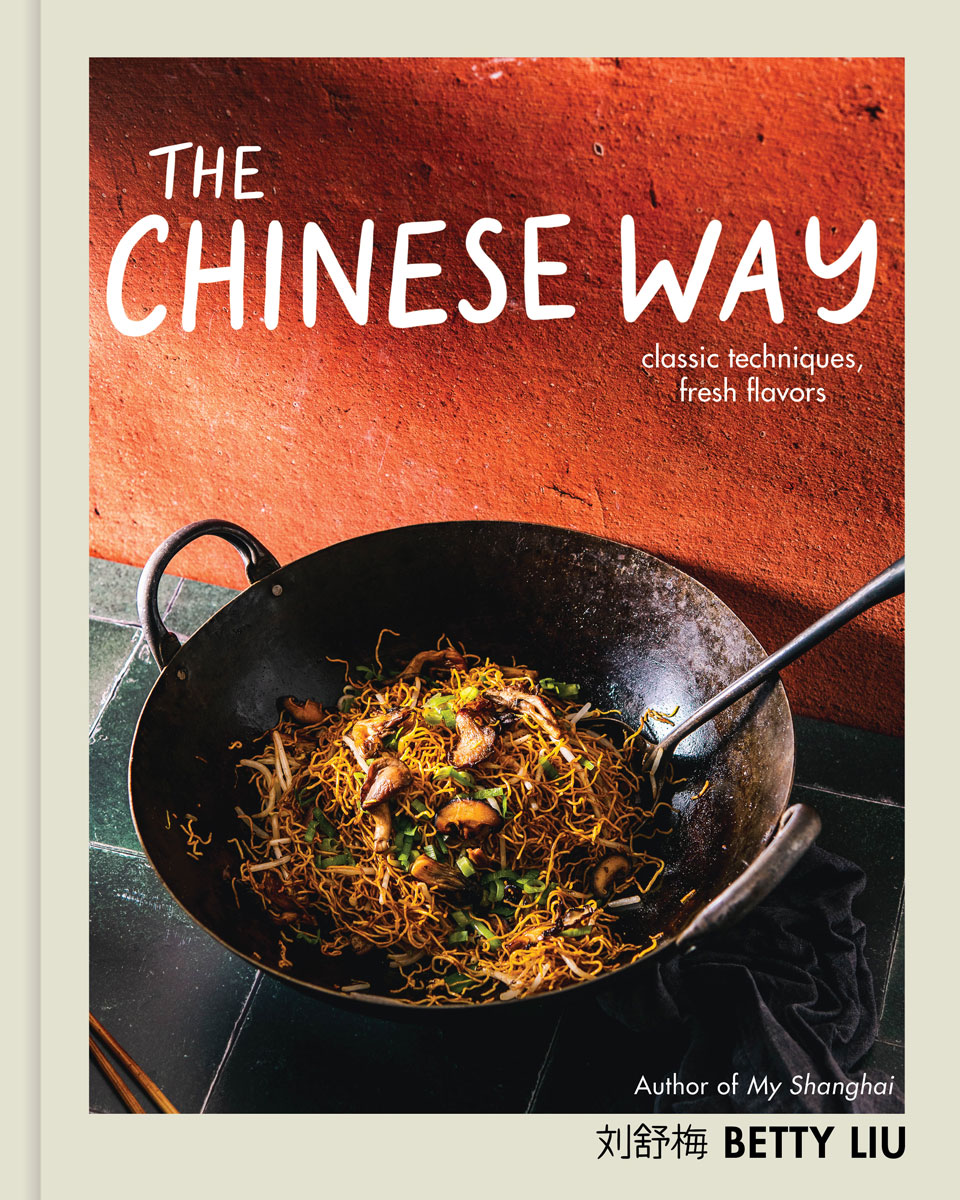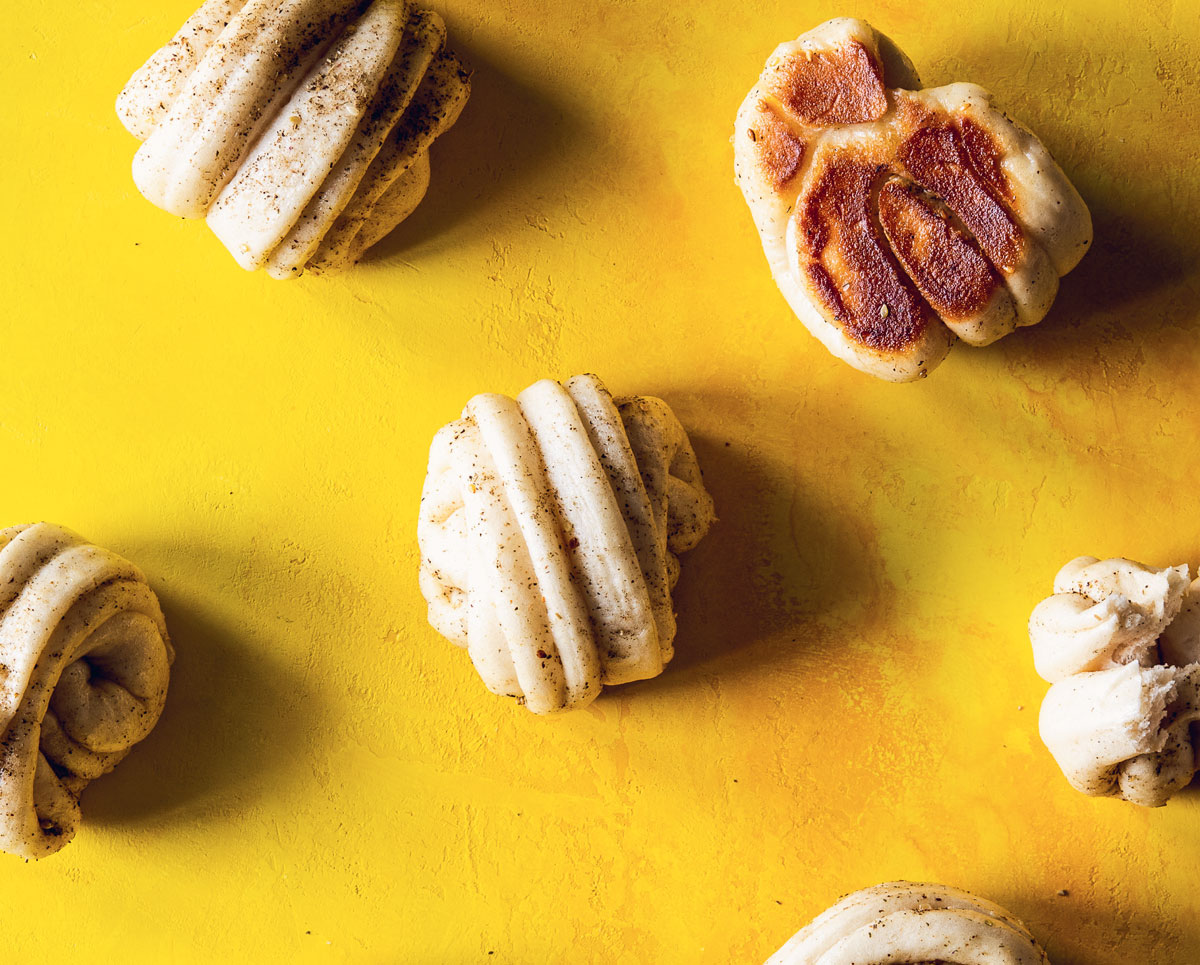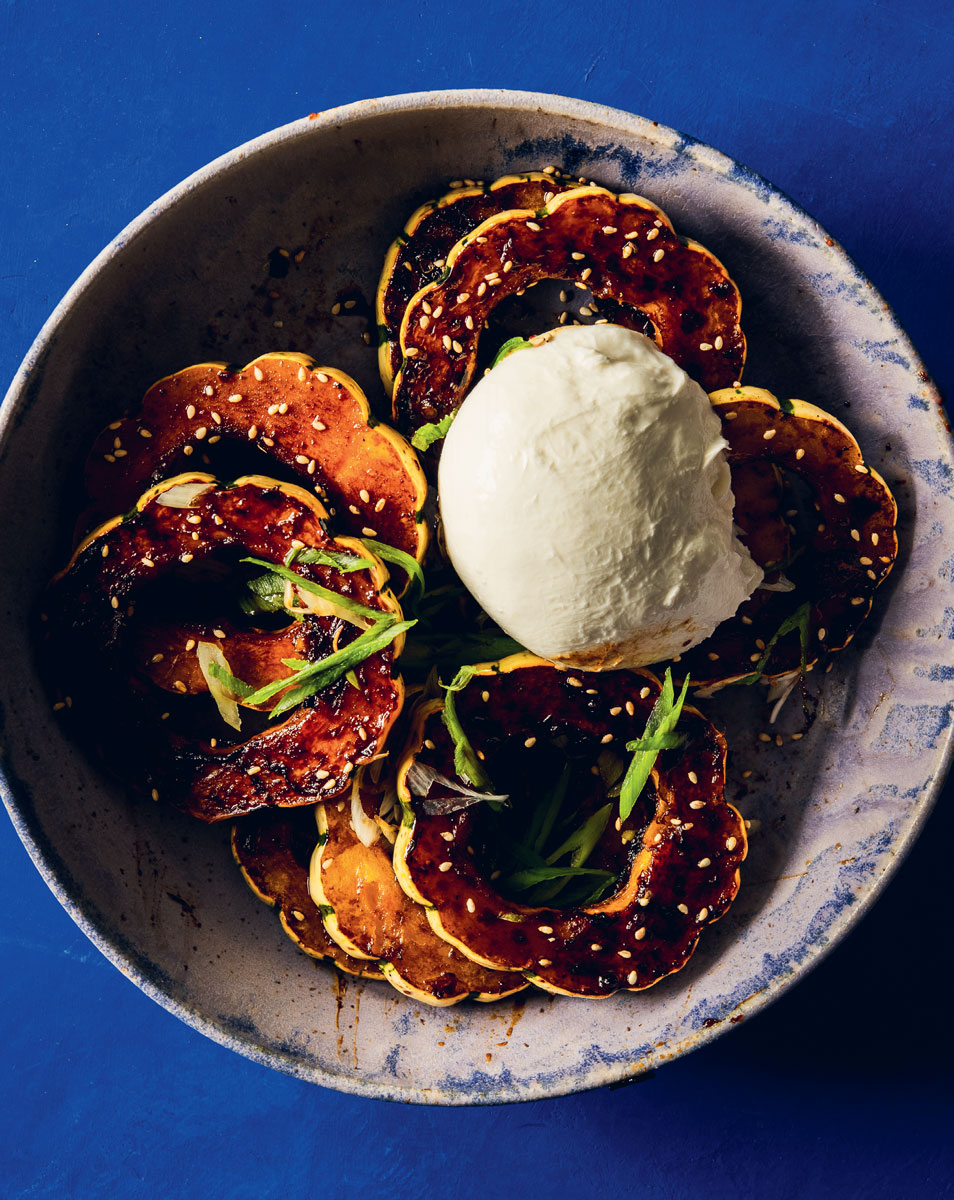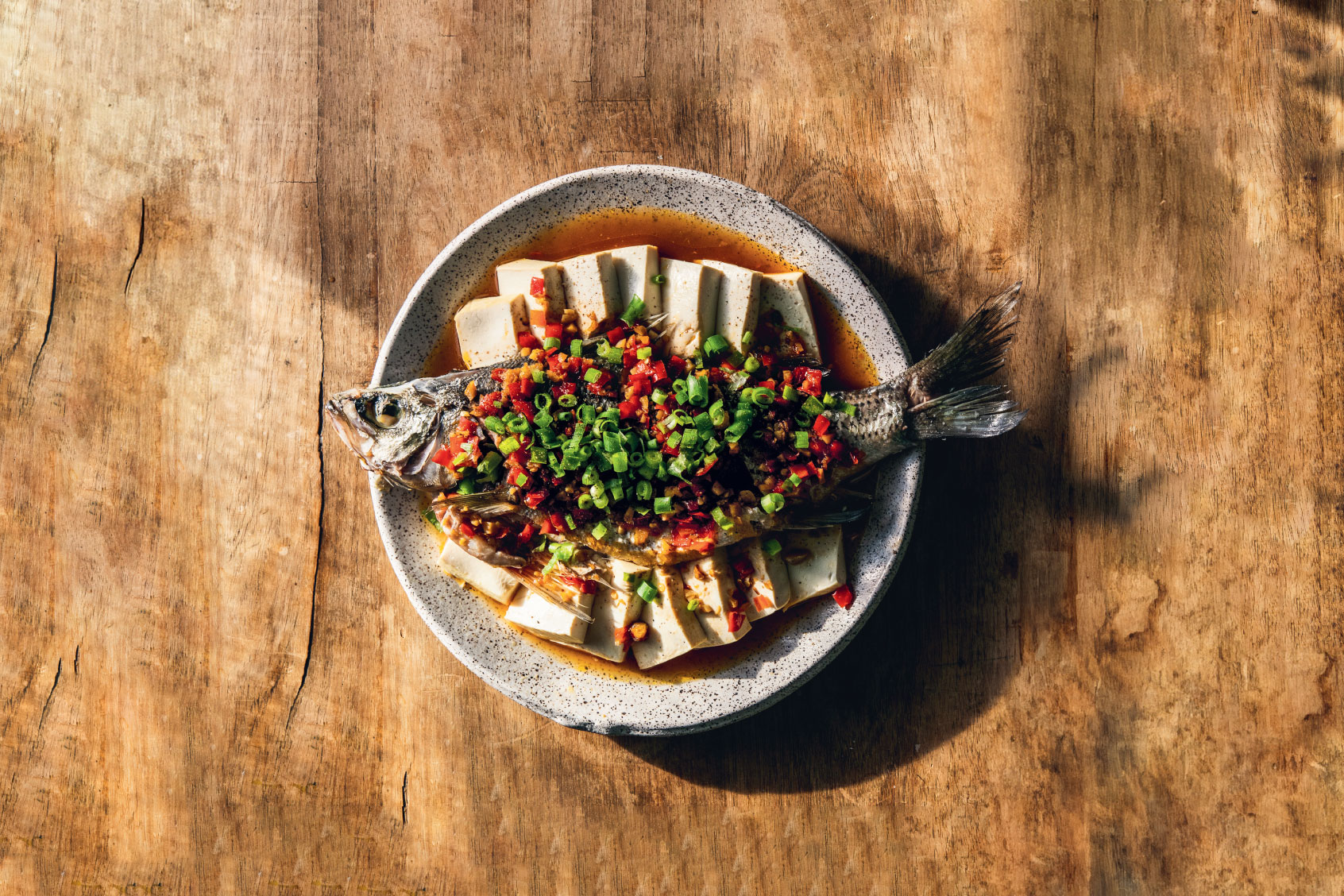Betty Liu is not a formally-trained chef — but that didn't stop her from writing one of my favorite cookbooks of the year.
Liu, currently in training to be a surgeon, is a two-time cookbook author who also doubles as a photographer. Her first book, "My Shanghai: Recipes and Stories from a City on the Water," was just recently joined by a follow-up, "The Chinese Way: Classic Techniques, Fresh Flavors." And the recipes inside more than live up to the name.
In the book, Liu presents eight different forms of cookery, mixing-and-matching Chinese fundamentals and foundations with ingredients from all over the globe, resulting in some of the most delectable-sounding dishes I've come across in some time (delicata squash cut into rings and glazed with a sweet-and-spicy glaze before being topped with milky, creamy burrata? Genius!)
As Liu writes on her website, "The Chinese way of cooking is not about who you are, strict traditional recipes, or even which type of soy sauce you use. Instead, it’s an ethos that builds on a set of eight powerful, adaptable cooking techniques that flex with your pantry and the seasons—and anyone can do it."
Salon Food recently had the opportunity to speak with Liu to get her insight on cooking, Chinese techniques, her balancing between being a surgery resident in training and being a passionate home cook and much more.
 Betty Liu (Photo courtesy of Betty Liu)
Betty Liu (Photo courtesy of Betty Liu)
The following interview has been lightly edited for clarity and length.
This is a terrific cookbook — one of my favorites this year! How would you differentiate this book from "My Shanghai"?
"My Shanghai" was the book I felt like I needed to write – it’s an homage to my roots: the Shanghainese food I grew up eating. It holds the flavors of home, of nostalgia and I still reference it when I crave comfort and familiarity. There is a taste memory there. When I cook and taste these traditional flavors, I am transported home.
The Chinese Way is the book that I really wanted to write. It reflects how I truly cook. Rarely will you find anyone who
only cooks traditional food at home, especially those in my generation, or Chinese Americans!
Our kitchen and pantry are a reflection of time and place and my kitchen has not only various soy sauces (actually, tamari now that my child is allergic to wheat), but also miso paste, various mustards, vinegars beyond black and rice and more. I cook with not just traditional ingredients, but still in a very Chinese way and thus came the shape of the book.
What would you say you'd love for people to take from this cookbook?
That Chinese food isn’t rigid and it’s not as hard as you think! I think Chinese food is often seen as intimidating, because there’s a perception that it has to taste a certain way (ie, what’s been made mainstream in western media). But Chinese cooking is actually very flexible and you can cook Chinese without cooking traditional Chinese.
How does this book represent your culinary ethos and outlook?
It is a true reflection of how I cook at home! I turn to traditional recipes usually when I am craving a specific dish, but for everyday cooking, I start with what I have in my refrigerator or pantry and then think about what I can do with it (steam? Fry? Braise?).
I rarely cook traditional dishes on a day-to-day basis. A lot of the homestyle dishes are meant to be riffed, not strictly adhered to. Let’s take chow mein – there are endless varieties of this. It doesn’t always have to be mushroom, carrot, or whatever is popular. I’ll make chow mein with what I have in the fridge, it’s a pantry meal! In The Chinese Way, there is a sausage and cauliflower chow mein that is a winning combination and easy to put together – just as an example of a “nontraditional” chow mein dish.
 The Chinese Way by Betty Liu (Photo courtesy of Betty Liu)
The Chinese Way by Betty Liu (Photo courtesy of Betty Liu)
Do you have a favorite recipe in the book?
This is so hard! Right now, as I’m doing this interview, I’m in the mood for the caramelized shallot da bing, cod with black garlic butter and red braised kabocha.
Is there a particular dish, whether in the dish or not, that you feel best represents you as a true "signature dish?”
Can I choose two? Savory Miso Oats is something I have been cooking for many years and then my pork and shrimp wontons are also always a hit.
There's such an amazing breadth of ingredients and techniques in this book — what would you say is a good recipe from the book that’d be great as a start for a beginner cook? Conversely, is there a more complicated dish in the book that you think would make for a wonderful “project” on a long weekend for a more advanced cook?
Conversely, is there a more complicated dish in the book that you think would make for a wonderful “project” on a long weekend for a more advanced cook? I’m hoping this will be a great resource for the curious cook!
I think to start, dishes in the STEAM chapter are fairly straightforward and the technique is easy to execute. For a weekend project, definitely in the WRAP chapter – such as the baos or mushroom-scallion milk bread rolls!
We need your help to stay independent
What was the development process like?
It was simultaneously fun and excruciating! I started with the technique and then tried to provide a variety of ingredients to use said technique with. I also wanted it to reflect foods I truly cook, so I drew inspiration from meals I’ve made in the past, or just started with my basic pantry staples. I had a lot of scraps and re-developing, because the food not only had to taste good, but also had to illustrate the concept of the technique. Every recipe was also tested externally by a professional recipe developer.
Now, you don’t work in food, right? Can you talk a bit about how your professional life and cooking intertwine?
I don’t. My “day job” is as a surgery resident and that has certainly influenced the way I cook now. I’m often reaching for pantry items or what I have in the fridge – by the time I’m cooking I don’t’ have time to go out and buy new ingredients for a planned recipe!
Cooking has definitely served as a creative outlet and helped prevent professional burnout. I find solace in making food, especially for my family and friends.
I’m intrigued by the way the book is divided, with sections like “sauce” and boil”. The chapter breakdown mixes both technique and methodology (i.e steam and fry), as well as flavor profiles (infuse, pickle, etc.) How do you see the two operating together? What inspired you to set up the book like that?
I consider them all broadly, a type of technique. For sure steam, fry, boil, braise are more clear-cut as cooking techniques, but the others – infuse, sauce, pickle… while perhaps not seen as a culinary technique in western cooking very much are techniques in Chinese cooking.
Infuse in particular is not very well known, but an integral technique to draw out flavor. Sauce also, was difficult for me to translate into an English word, as there are a few Chinese words to describe nuances in this technique, but is very much a Chinese cooking technique. Pickle, too, I use here as a verb, not as a noun – I’m describing not so much the flavor profile, but the method of preserving and pickling, which can then be a powerful tool to use in your kitchen.
I organized it this way because this was how I learned to cook – starting with a technique.
Want more great food writing and recipes? Subscribe to Salon Food's newsletter, The Bite.
I believe there are no deserts in the book. Do you generally tend to cook savory when you’re in the kitchen?
There are a few sweeter dishes, such as jiu niang poached pear and hojicha steamed fa gao – but you are right, I don’t have a dedicated dessert chapter, or do sweets make up any significant part of the book. I do usually cook savory!
What stands out for you as a formative moment that got you into cooking or food at large?
When I left my home for college – from the Bay Area to the Midwest, I had a bit of a culture shock. I missed the food from home, but I also found myself bereft of even the option of going out to a wide breadth of Asian restaurants. So, I started to cook.
What would you say are your three most used ingredients?
Scallion, soy sauce (or tamari) and garlic.
 Pan-Fried Za'atar Flower Buns (Photo courtesy of Betty Liu)
Pan-Fried Za'atar Flower Buns (Photo courtesy of Betty Liu)
What is your favorite cooking memory?
Wrapping wontons with my mother!
What’s your biggest tip for cutting down on food waste?
You can use a lot of what’s considered waste – save those onion peels, bones, stems for soup! A kitchen sink soup is one of my favorites.
How do you practice sustainability in your cooking?
I try to minimize food waste, and when shopping, minimize plastic.
How do you interpret "classic techniques, fresh flavors"? I love that subtitle.
All of my cooking is based on classic techniques. This is where I start — but, my food, as you can see in the recipes here, is most definitely not traditional.
One of the press releases for the book emphasizes the "enduring adaptability of Shaganiese cuisine" which I felt truly did come through in the book. How do you apply those techniques in your everyday cooking?
Once I get a sense of the ingredients I have in my pantry, I then think about technique – to simply things, it’s “what can I do with this chicken thigh today? I could steam it after a marination, stir fry it (perhaps with some pickles?)” – this is how I run through my meal options!
 Sweet and Spicy Delicata Squash with Burrata (Photo courtesy of Betty Liu)
Sweet and Spicy Delicata Squash with Burrata (Photo courtesy of Betty Liu)
What's next for you? Would you think about expanding into the restaurant space? Your recipes are excellent!
I like where I am, I think. I’m going to finish my surgical training and be a surgeon, but also maintain my love and passion for cooking and share it with the world.
Read more
about this topic


